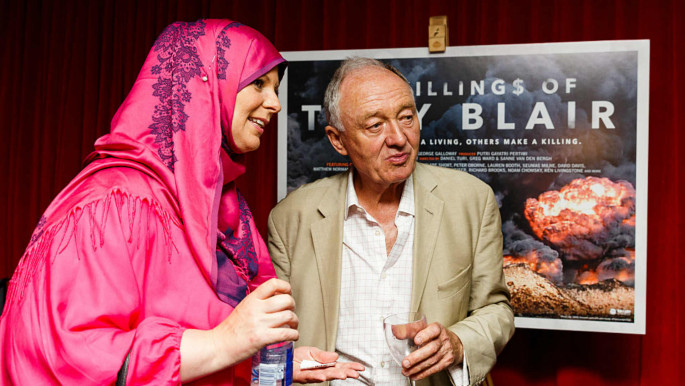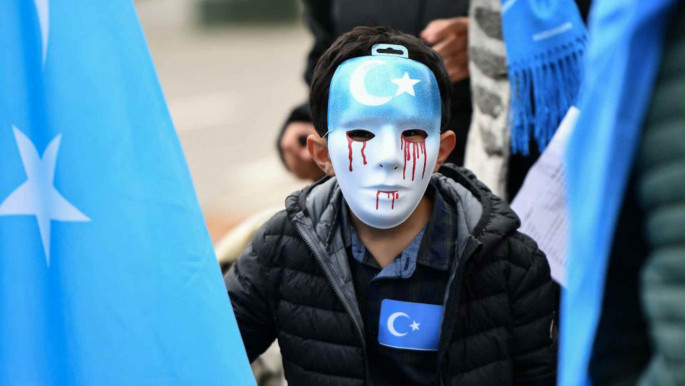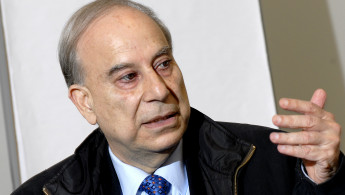Ambassador of Islam: Talking religion, immigration and identity with Professor Akbar Ahmed
Author of more than a dozen award-winning books, including the celebrated Discovering Islam: Making Sense of Muslim History and Society, which was broadcast as a major six-part BBC TV series called Living Islam, he is also known to be a frequent media commentator on issues related to Muslim communities internationally.
His most recent project examined the relations between the West and the world of Islam after 9/11, resulting in a quartet of books: Journey into Islam: The Crisis of Globalization (2007), followed by Journey into America: The Challenge of Islam (2010) and The Thistle and the Drone: How America's War on Terror Became a Global War on Tribal Islam (2013).
The final instalment was published this year as Journey into Europe: Islam, Immigration and Identity. In this interview Professor Ahmed discusses his most recent book and provides an analysis of recent events and issues challenging Muslim communities in the West and the Middle East region.
The New Arab: This massive, decade-long project has taken four different perspectives to view and understand the question of global Muslim-non Muslim relations. What historical developments over the past ten years have you been encouraged by and what has made you anxious - specifically in the regions you discussed in the first three volumes of the quartet?
 |
|
| Read also: A celebrity conversion story: 'Finding peace in the Holy Land' |
Professor Akbar Ahmed: "Since I've been conducting my quartet of studies for Brookings Institution Press, I have been encouraged by the significant growth in interfaith dialogue. It is happening globally and more and more people have been involved.
"I was involved in interfaith work long before 9/11 and I observed how reluctant most Muslims were to interfaith dialogue, especially Jewish-Muslim dialogue. Every time I entered a synagogue, before 9/11, I would get a lot of flak from Muslims, who would be quite sharp in their criticism - some would even accuse me of being a Zionist agent and so on.
"Today I find that this has changed. Many Muslims are now quite happily working with the Jewish community and there are many Muslim-Jewish-Christian dialogue platforms and organisations - a development which pleases me.
"One of the greatest challenges is that Islamophobia is not fading away as people understand each other better. This worries me because it is being translated into more and more violence.
"In the recent attack in Pittsburgh against the Jewish community, the killer - a white man - walked in and used a chilling slogan: "All Jews must die!" The media, however, overlooked the fact that he also voiced a hatred for Muslims. He also could have walked into a mosque and done exactly the same thing that he did in the synagogue. So we are living in a world that is more and more violent. Islamophobia is spreading with attacks on mosques and Islamic centres as well as against Muslim women wearing the hijab.
"Against this, the interfaith alliances are increasing impressively compared to before 9/11, but are still not strong enough to check the violence that accompanies Islamophobia and anti-Semitism."
 |
Many Muslims are now quite happily working with the Jewish community and there are many Muslim-Jewish-Christian dialogue platforms and organisations |  |
Given the immense effort put into this work, how has the most recent volume been received among the audiences that it is intended for?
 |
|
"The last volume of my quartet of studies examining relations between the Muslim world and the West, Journey into Europe, has been received very well.
"We've had many excellent reviews; for instance Professor Todd Green in Reading Religion, a publication of the American Academy of Religion, described it as 'a masterpiece'.
"The New York Times gave it a very positive review and Newsweek selected it as one of the top 50 books of the summer.
"Many Muslim scholars around the world have also given it excellent reviews. Simultaneously, as if to prove that the book has merit, some of the more notorious Islamophobes have attacked it because the author is a Muslim.
"Anything to do with Islam invokes their wrath and irrational fury. So in that sense, the book is out there, it has played a role and is being read by the serious scholars looking at the central issues raised - immigration, terrorism, the rise of the far-right parties in Europe and the relationship between these different features of society. We also made a number of recommendations that I hope the policy makers will read and take seriously."
The crises facing Muslims internationally appear to be proliferating with ongoing tragedies such as the Rohingyas in Myanmar, the Uighurs in China - in addition to growing anti-Muslim sentiment in India, unresolved conflict in occupied Kashmir, various wars in the Middle East and rise of far-right populism in Europe and America.
You have in the past written about the sense of 'Islam being under siege' and despite the huge differences in history, geography, politics, ethnicity and culture - many Muslim communities express a shared sense of being overwhelmed and are pessimistic. What advice would you give them?
"This is an important question because it shows a certain awareness, sympathy and empathy for Muslim communities who are subjected to a great deal of economic, political, and cultural pressure. My advice to Muslim minorities everywhere, but also those living as majorities, is to remember two lessons:
"The first is that we are living in time where societies everywhere are interconnected, so we cannot divorce or split the Muslim world from the non-Muslim world. If Muslims are persecuted in non-Muslim countries and they complain, and I as a Muslim living in the West also complain with them, and sympathise with them, similarly Muslims have to understand that Muslim-majority countries are genuinely and legitimately accused of maltreating their minorities.
 |
|
| Read also: China can no longer cover up its Uighur Muslim oppression |
"So whether it is Christians in Egypt or Pakistan complaining about the constant violence against their communities and suffering from attacks on churches, their grievances need to be addressed.
"When you add these two factors, the Islamophobia in non-Muslim countries and the attacks on non-Muslims in Muslim-majority countries, you have a global problem. Both communities have to understand that while here I may be in the majority; over there I'm in the minority.
"Therefore, we need to understand each other's positions and understand that if I do bad things over here, then bad things will be perpetrated against my community over there.
"We are then back to the most fundamental principle of all the great faiths: treat others as you would want others to treat you.
"The second lesson I would want Muslim communities to take heed of is not to despair and to maintain hope and optimism. Muslims are going through a very bad time in their history right now, but if they study Muslim history and world history, they will see that there were far worse times when Muslims were on the verge of being wiped out. Yet they not only survived but triumphed over the sources of their adversity.
"This is a reoccurring pattern of history. In 1258, Baghdad was destroyed by the Mongols, then, in a generation or two, those very Mongols became Muslims and their descendents produced the great Muslim dynasties, Central Asia and India with one of the most glorious dynasties in history.
"So this is a pattern of history and Muslims must take heart and learn from this and above all remember the Quranic exhortation to believers to have faith, to be consistently faithful and cultivate balance, peace, and compassion inside ourselves."
 |
We are then back to the most fundamental principle of all the great faiths: treat others as you would want others to treat you |  |
As an advocate of inter-faith dialogue and peace building between Jews, Christians and Muslims - what policies would break the deadlock in the Israel/Palestine conflict?
"This is one of the thorniest of questions and also one of the most important. It must be tackled by every person of good will, whether Abrahamic or non-Abrahamic.
"The reason is that Jerusalem is a city loved and revered by all the Abrahamic faiths, and tragically it has become a city that is now generating so much hatred and violence. I would encourage the warmth and friendship that I see in Jewish-Muslim dialogues taking place today in countries like the United States to be transferred to the Middle East, where I would like to see the same rabbis and Jewish scholars on the one hand, and the imams and Muslim scholars on the other, translating their friendship and dialogue so that the people of Israel and the Palestinians see live examples of what is possible.
"I am very pleased to hear about the active interfaith dialogue efforts in Israel and among the Palestinians, that should continue and we should not give way to despair and to pessimism."
What hopeful trends do you see in the MENA region after the complex upheavals since the failed revolutions of 2011?
"The most hopeful trends are two-fold. The first is the advent of social media which didn't exist a decade or two ago. Today, the younger generations are instantly in touch with the world online. Secondly, the emergence of young people working for positive change.
"Again, a few decades ago the youth did not play the role it is playing now. That is a factor that is new, and this gives me hope, because these young people really want to live in a globalised world, to reach out and to connect with other societies. It is important to remember that the vast majority of Muslims in the Muslim world are young and that is cause for hope."
 |
Young people really want to live in a globalised world, to reach out and to connect with other societies |  |
What priorities should the new prime minister of Pakistan, Imran Khan, pursue domestically and in relation to neighbours and strategic allies in the Middle East?
"Imran Khan has a clear vision of his understanding of Pakistan, and I'm pleased to see that it is inspired by Muhammad Ali Jinnah, the Quaid-i-Azam, who founded Pakistan. He emphasised women's rights, minority rights, and the rule of law.
"Imran's challenge is not the vision, which he accepts and wants to implement, but how to implement it.
"He cannot implement it without his police, civil servants, and political allies, and indeed if other parts of civil society are with him. If he does not have society with him, he will find it very difficult to achieve his dreams and aspirations, and we pray that he succeeds in implementing his vision for the nation."
Order your copy of Journey into Europe: Islam, Immigration, and Identity here.
Dr Sadek Hamid is an academic who has written widely about British Muslims. He is the author of 'Sufis, Salafis and Islamists: The Contested Ground of British Islamic Activism' and is co-author of 'British Muslims: New Directions in Islamic Thought, Creativity and Activism'.
Follow him on Twitter: @sadekhamid




